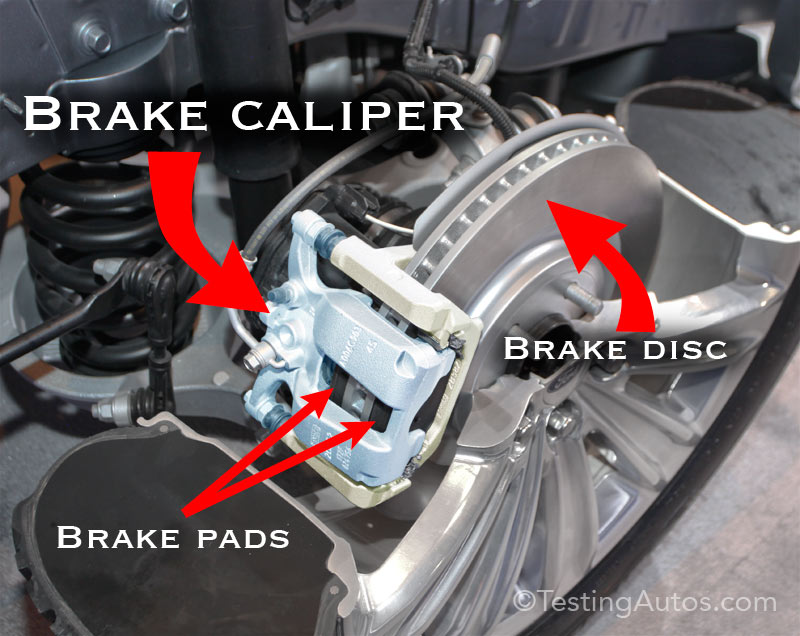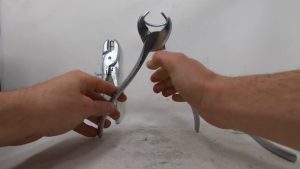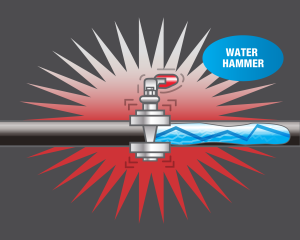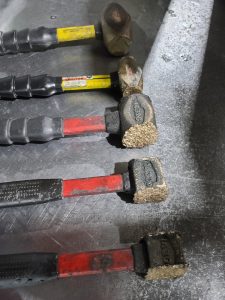When it comes to your car’s safety, few components are as crucial as the brake system. But have you ever wondered how long your brake calipers actually last?
Understanding their lifespan isn’t just about preventing unexpected repairs; it’s about ensuring peace of mind every time you hit the road. You rely on your vehicle to get you from point A to point B safely, and knowing when to check or replace your brake calipers can make a big difference.
We’ll uncover what affects their longevity, signs that they might be wearing out, and how to keep them in optimal condition. Stick around to discover how you can save money and enhance your driving safety by staying ahead of brake caliper issues.
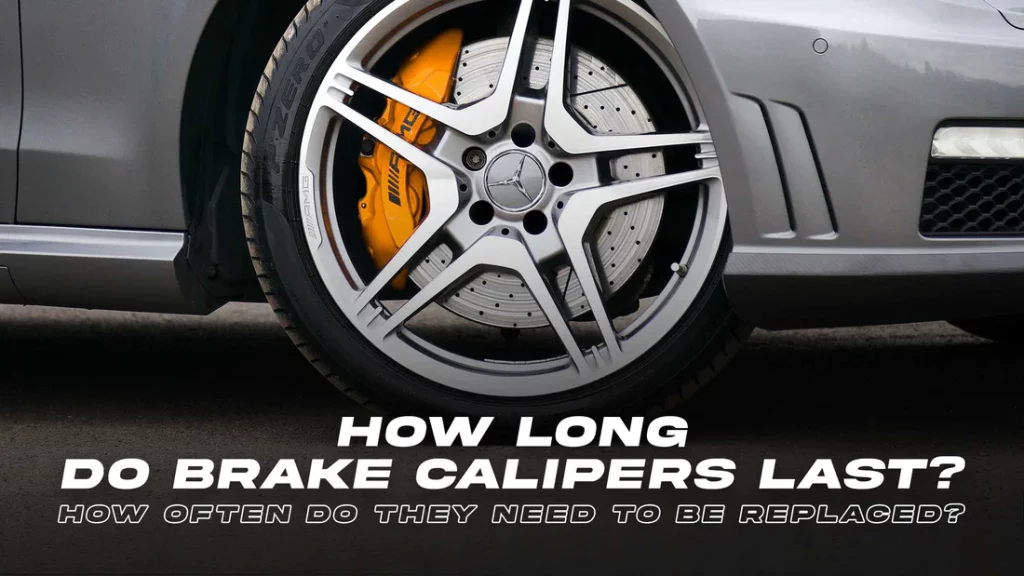
Credit: tptforeigns.com
Lifespan Of Brake Calipers
Brake calipers typically last between 75,000 and 100,000 miles. Their lifespan depends on driving habits and road conditions. Regular maintenance can extend their durability.
Lifespan of Brake Calipers Brake calipers are crucial for your car’s braking system. They squeeze the brake pads against the rotor to slow down or stop your vehicle. But how long do they actually last? A while ago, I was driving down a steep hill when my brakes felt a bit off. It was then that I realized the importance of understanding brake caliper lifespan. Knowing when to replace them can make a huge difference in your safety and wallet.
Factors Affecting Durability
Several elements impact how long your brake calipers will last. Driving habits play a significant role. Aggressive driving and frequent braking can wear out calipers faster. The environment also matters. If you live in a humid area, rust can be a problem, reducing the lifespan of your calipers. Maintenance is another key factor. Regularly checking your brake system can help catch issues early, ensuring your calipers last longer.
Typical Mileage Expectations
Most brake calipers have a lifespan that ranges between 75,000 to 100,000 miles. However, this can vary. If you mostly drive in the city, expect your calipers to wear out sooner due to frequent stops. On the other hand, highway driving might extend their life. Do you remember the last time you checked your brake system? Regular checks can provide peace of mind and help you avoid unexpected repairs. Have you ever been surprised by brake issues? Understanding these factors could prevent that from happening again.
Signs Of Wear And Tear
Brake calipers generally last 75,000 to 100,000 miles. Signs of wear include uneven braking and squeaking noises. Regular inspection helps ensure safety and performance.
Noticing signs of wear and tear on your brake calipers is crucial for maintaining your vehicle’s safety. Brake calipers play a vital role in your car’s braking system, and any issue with them can significantly affect stopping power. Recognizing early warning signs can help you address potential problems before they escalate.
Common Symptoms
One of the most telling symptoms of worn-out brake calipers is a squealing or grinding noise when you brake. This sound often indicates that the brake pads have worn down, which can also affect the calipers. Another symptom to watch for is a pulling sensation when you apply the brakes. If your car drifts to one side, it might mean that one of your calipers isn’t functioning properly. A spongy or soft brake pedal is another red flag. If you notice that you have to press the brake pedal further to stop, it might indicate a problem with your calipers. This could be due to a brake fluid leak or a caliper that isn’t applying pressure evenly.
Visual Indicators
Visual checks can also reveal signs of brake caliper wear. Look for brake fluid leaks around the caliper area, which can be an indication of a damaged or failing caliper. Brake fluid is generally clear or slightly yellowish, so any wetness or stains around the caliper could be a clue. Inspect the calipers for rust or corrosion. While some surface rust is normal, excessive corrosion can compromise the caliper’s function. Also, examine the brake pads; uneven wear can suggest a caliper issue. If you’ve ever experienced a sudden loss of braking power, you know how important it is to keep an eye on these visual signs. Addressing them early can save you not only from costly repairs but also from potential accidents. You might wonder: How often should you check for these signs? Regular maintenance checks, ideally every six months, can keep you informed about your brake calipers’ condition. Have you ever ignored a minor car issue only to face a bigger problem later? Checking for wear and tear can prevent such situations. So, next time you hear a strange noise or feel something unusual while braking, take a closer look. Your safety might depend on it.
Maintenance And Care
Brake calipers are essential for your vehicle’s safety, ensuring effective braking. Regular maintenance and care can significantly extend their lifespan. By keeping them in top condition, you not only enhance performance but also save money on costly repairs. Let’s dive into some practical tips that can help you maintain your brake calipers.
Regular Inspection Tips
Inspecting your brake calipers regularly is key to spotting potential issues early. Look for signs of wear and tear, such as rust or corrosion. Check for leaks in the brake fluid, which might indicate a problem with the caliper seals.
Don’t wait for a problem to arise. Make it a habit to inspect them every time you change your oil or rotate tires. This proactive approach can help you catch small issues before they become big headaches.
Have you ever found yourself caught off guard by a sudden brake failure? Regular inspections can prevent these unexpected moments, ensuring your vehicle remains safe on the road.
Cleaning And Lubrication
Cleaning your brake calipers is crucial in preventing dirt and debris buildup. Use a brake cleaner spray to remove grime, and a brush to scrub away any stubborn dirt. This simple step can keep your calipers functioning smoothly.
Lubrication is equally important. Apply a high-temperature brake grease to the caliper slides and pins. This reduces friction and prevents rust, helping your brakes operate efficiently.
Ever felt your brakes sticking or making odd noises? Proper cleaning and lubrication can eliminate these issues, ensuring a smoother ride. It’s a quick task with big benefits, enhancing the longevity of your calipers.
Are you giving your brake calipers the attention they deserve? Regular maintenance can be the difference between a safe journey and a costly repair.
Maintaining brake calipers is not just about avoiding problems. It’s about ensuring your vehicle’s reliability and your peace of mind. With these practical tips, you can keep your calipers in optimal condition, ready for any road ahead.
Repair Vs. Replacement
Brake calipers typically last between 75,000 to 100,000 miles. Age, driving habits, and maintenance affect their lifespan. Repairing calipers can be cost-effective if damage is minor, but replacement is necessary if they fail completely, ensuring safe and reliable braking.
Repairing brake calipers can extend their life. But sometimes replacement is better. Knowing when to repair or replace saves money and ensures safety.
Cost Considerations
Repairing brake calipers often costs less than replacing them. Skilled mechanics can fix minor issues, keeping costs low. Replacement is pricier, especially with high-quality parts. Budget affects decisions. Consider long-term safety and reliability. Investing in new calipers can prevent future expenses.
When To Replace
Replacing brake calipers becomes necessary when repairs are frequent. Notice sticking brakes or uneven wear. Listen for strange noises while braking. These signs suggest it’s time to replace. Damaged calipers affect braking performance. Regular checks help identify problems early. Ensure brakes work smoothly and safely.
Expert Advice
Understanding how long brake calipers last requires expert advice. Insights from professionals offer guidance and peace of mind. Brake calipers are vital for vehicle safety. Their lifespan varies based on several factors. Driving habits, vehicle type, and maintenance play roles. Regular checks and care ensure they perform well.
Professional Insights
Mechanics agree that brake calipers can last between 75,000 to 100,000 miles. This depends on driving conditions and maintenance practices. City driving wears down calipers quicker than highway driving. Professionals suggest regular inspections every 20,000 miles. This helps identify potential issues early. Routine checks prevent unexpected failures and costly repairs.
Recommendations For Longevity
Experts recommend keeping brake fluid clean. Contaminated fluid can harm calipers. Flushing the brake system every two years is ideal. Also, avoid aggressive braking when possible. It reduces stress on the calipers. Parking in garages protects calipers from rust and corrosion. Moisture and road salt can damage them over time.
Using quality brake pads extends caliper life. Cheap pads wear out faster and cause more damage. Investing in high-quality pads saves money in the long run. Regularly cleaning the brake system is crucial. Dirt and debris can lead to caliper problems. Keeping them clean ensures smooth operation.

Credit: www.whocanfixmycar.com
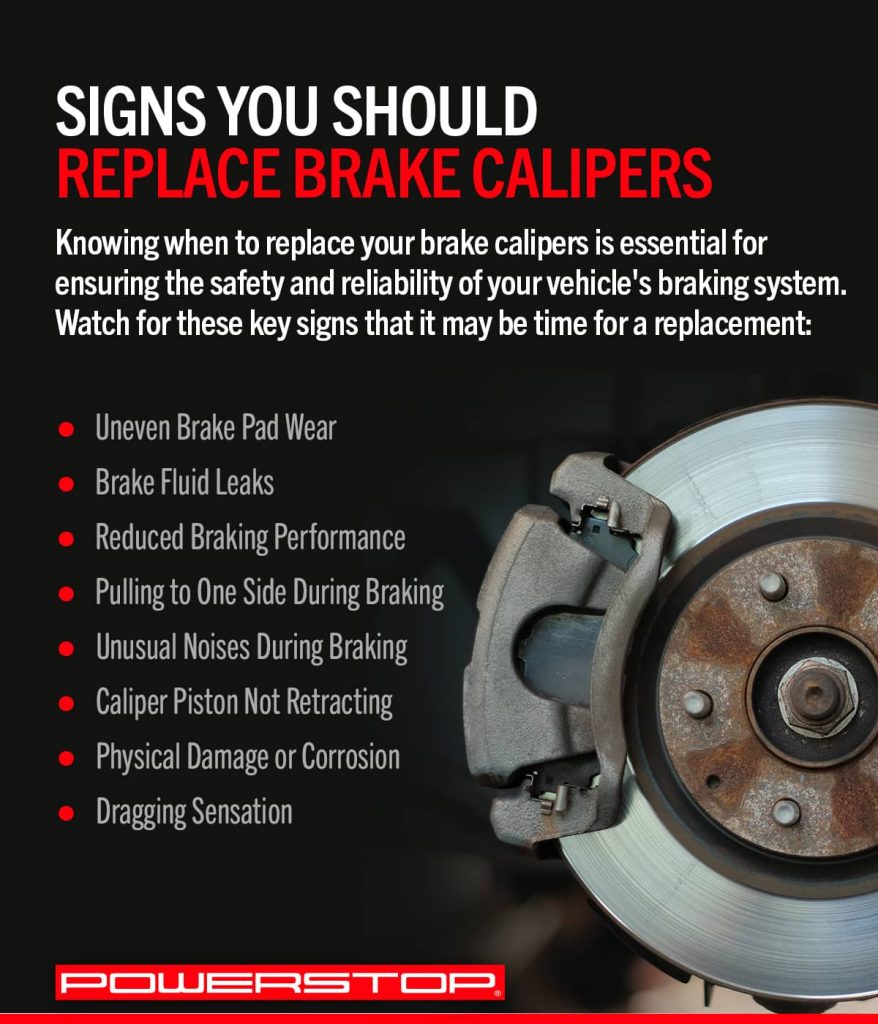
Credit: www.powerstop.com
Frequently Asked Questions
How Often Should Brake Calipers Be Replaced?
Brake calipers typically last between 75,000 to 100,000 miles. This depends on driving conditions and maintenance. Regular inspections can help identify issues early. Replace them if they show signs of corrosion or leakage.
What Causes Brake Calipers To Wear Out?
Brake calipers wear out due to corrosion, heat, and lack of maintenance. Exposure to moisture can lead to rust. Over time, seals may degrade, causing leaks. Regular cleaning and inspections can extend their lifespan.
Can Worn Brake Calipers Affect Vehicle Safety?
Yes, worn brake calipers can compromise braking performance. This increases stopping distance and affects vehicle control. Regular maintenance ensures optimal brake function. Always address caliper issues promptly to maintain safety.
Are There Signs Of Failing Brake Calipers?
Signs of failing brake calipers include squeaking noises, uneven braking, or leaking fluid. Reduced braking efficiency is another indicator. Regular inspections help detect these issues early, ensuring timely replacement.
Conclusion
Brake calipers play a vital role in vehicle safety. Regular checks are essential for their longevity. Typically, calipers last for many years. Driving habits and conditions can affect their lifespan. Listen for unusual noises when braking. This might indicate caliper issues.
Routine maintenance helps avoid costly repairs. Always replace worn-out calipers promptly. Safety comes first. Quality calipers ensure smooth and safe rides. Keep an eye on them. Your vehicle’s performance depends on it. Stay informed about caliper health. Ensuring their optimal function protects you on the road.
Prioritize regular brake system checks for peace of mind.

